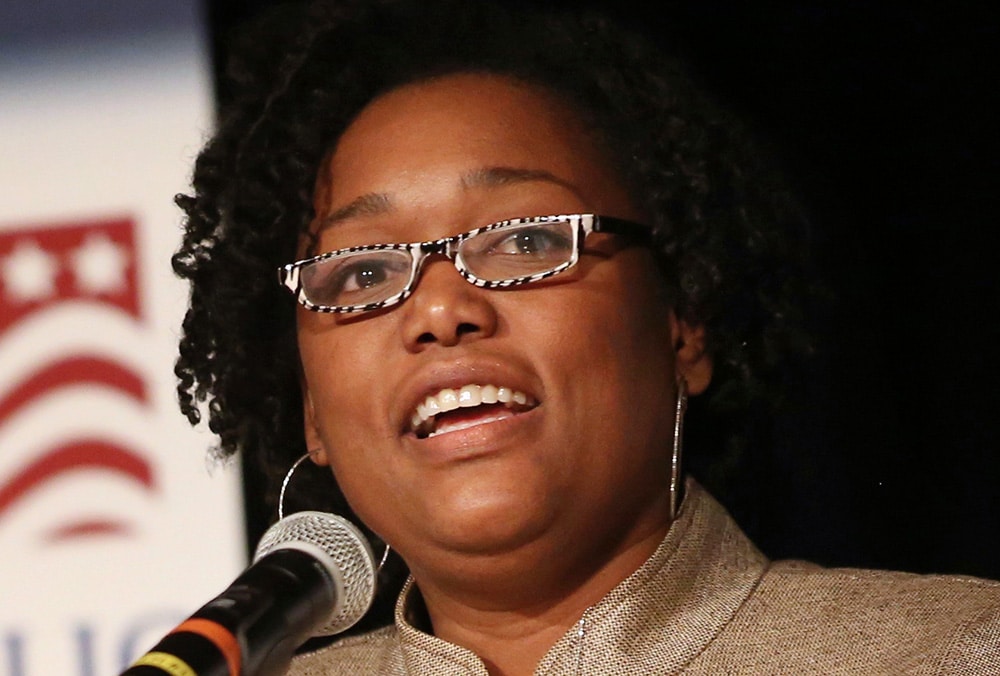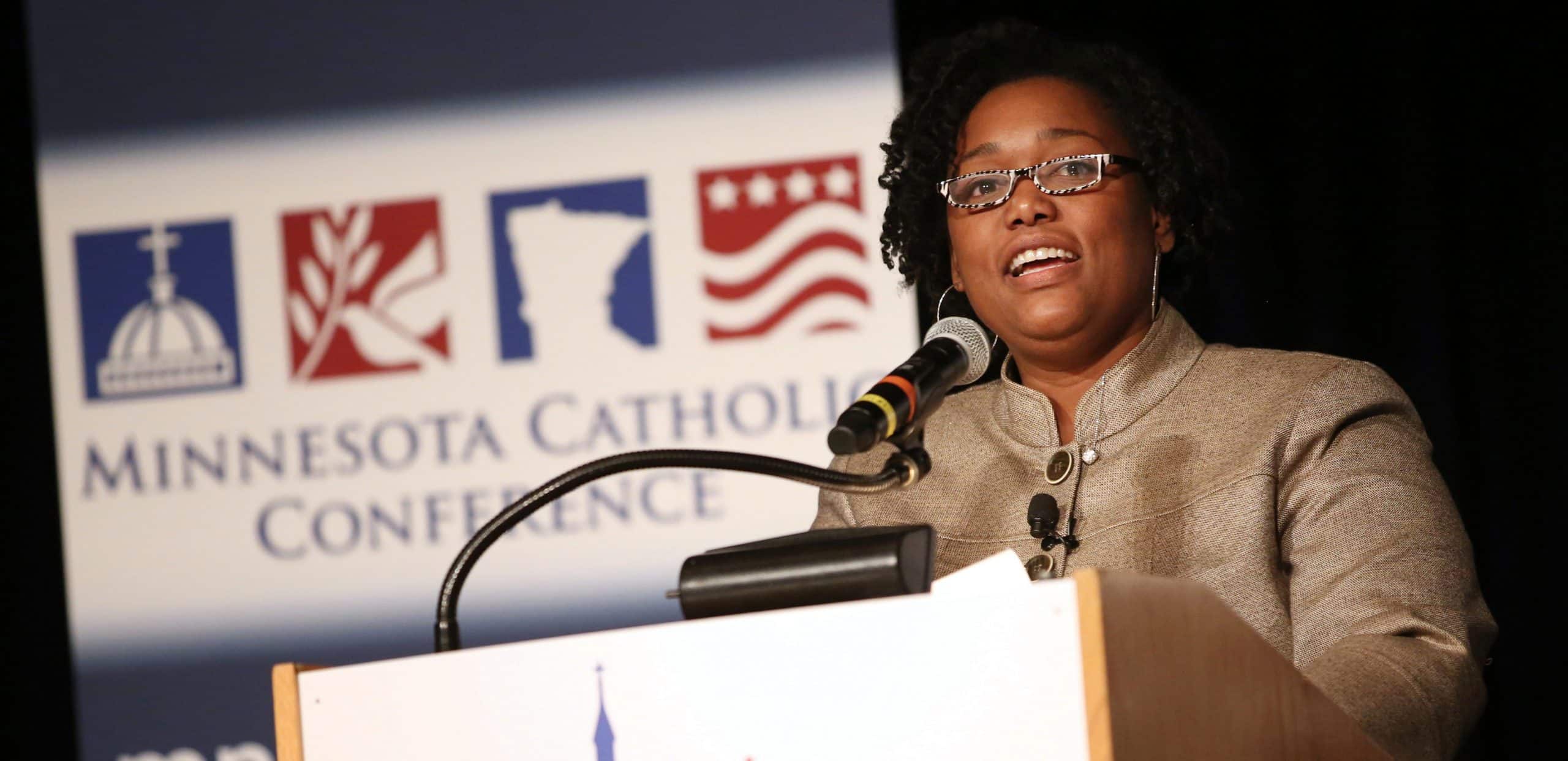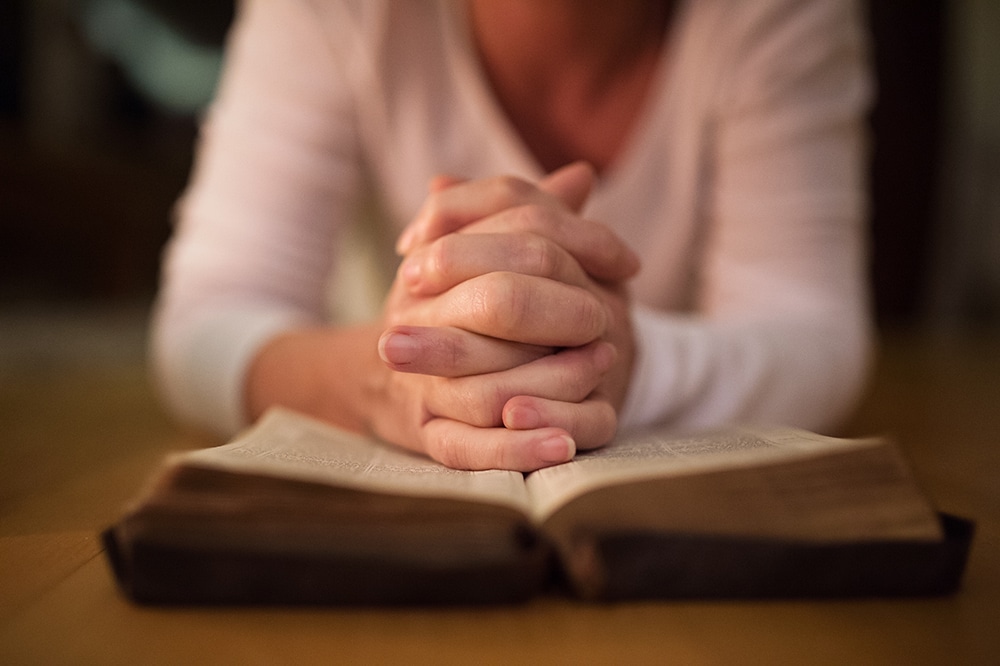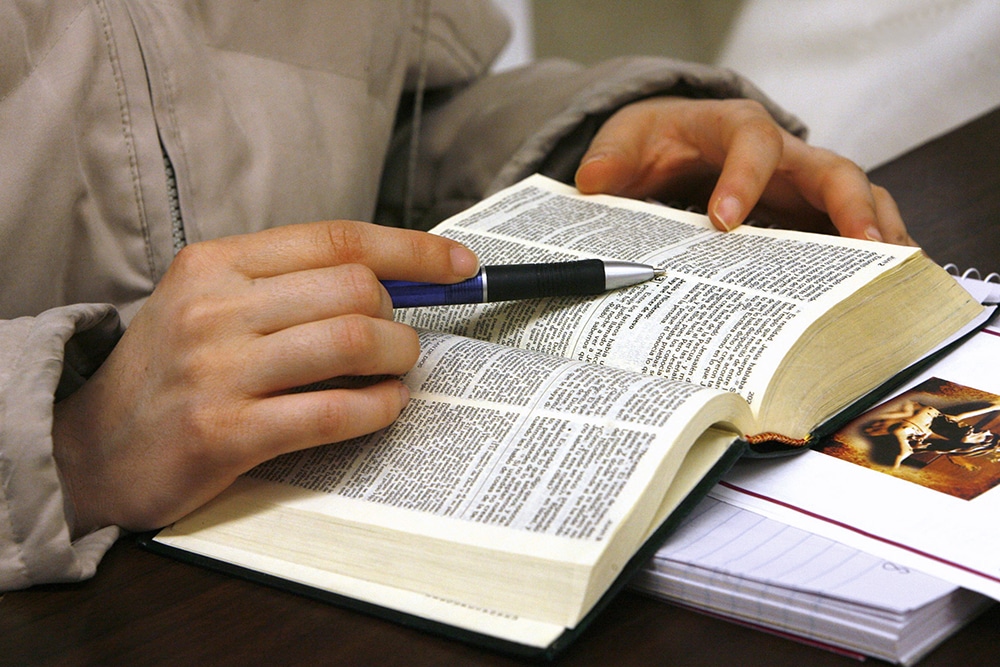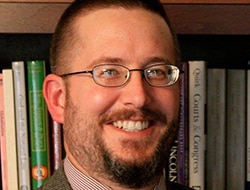 “From the Chapel” is a series of short, daily reflections on life and faith in a time of uncertainty. As people across the world cope with the effects of the coronavirus — including the social isolation necessary to combat its spread — these reflections remind us of the hope that lies at the heart of the Gospel.
“From the Chapel” is a series of short, daily reflections on life and faith in a time of uncertainty. As people across the world cope with the effects of the coronavirus — including the social isolation necessary to combat its spread — these reflections remind us of the hope that lies at the heart of the Gospel.
Most of us recognize that people who spend all of their time talking to themselves have a problem. (Those who don’t realize that probably spend all of their time talking to themselves.) It’s generally not seen as a good thing for a person to be “lost in his own thoughts,” much less “caught up in his own head.” When a person “never listens to anybody but himself,” we call him “close-minded.” We encourage him to listen to others and to “broaden his horizons” beyond the limits of his own experience.
But do we, as a culture, do that?
The obvious answer would seem to be yes. Our emphasis on diversity and inclusion and the experience of marginalized groups is a deliberate attempt to broaden our horizons as a society and to listen to the experience of others who are different from ourselves. And when we do so, we potentially learn something not only about those we listen to, but about ourselves. We see more clearly the limits of our own experience, the blind spots in our sight, the ways in which our thinking has been — not conditioned by, which would imply a certain determinism incompatible with free will, but wrapped up in the circumstances of our own lives.
But the obvious answer is not entirely correct. We live our lives, as I wrote yesterday, in media res, in the midst of things, and the one thing we all have in common — besides our common humanity — is the present moment. We speak of the past and the future as if they are separate realities, but the present, like the poor, we shall always have with us.
And having the present always with us, we tend to be as blind to it as we often are to the poor. It rarely occurs to us that the present has its limits as well — limits that are as constraining in their own way as our failure to recognize that others here in our own time have had experiences that differ from ours.
Tradition, Chesterton wrote, “is the democracy of the dead.” If your first reaction on reading those words is to wonder why Chesterton would think tradition has anything to do with democracy, you’ve just bumped up against one of the limits of the present. Here in 2020, we may think we see more clearly than did everyone in the past, but for us, tradition and democracy do not seem like two words that should be joined together by the word “is.”
If we continue to read this passage from Chesterton’s “Orthodoxy,” though, the idea at its heart comes into focus. “Tradition refuses to submit to the small and arrogant oligarchy of those who merely happen to be walking about. All democrats object to men being disqualified by the accident of birth; tradition objects to their being disqualified by the accident of death. Democracy tells us not to neglect a good man’s opinion, even if he is our groom; tradition asks us not to neglect a good man’s opinion, even if he is our father.”
Now, after pondering his words, we can choose to agree or disagree with Chesterton. Better yet, we can form more nuanced thoughts about why what he wrote was mostly right or partly wrong. But in doing so, we illustrate his point: Our own horizons have been expanded by encountering the words, published 112 years ago, of a man who has been dead for 84 of those years.
That Chesterton lived in a world that countenanced many things that our age would condemn does not make his works less relevant to us but, by our own standards, more so. Those who have gone before us can provide a diversity of experience and of thought that we cannot find among our contemporaries, no matter how diverse they are or how widely we expand our horizons, precisely because our contemporaries are our contemporaries, and thus share with us all of the unspoken assumptions of the present.
Scott P. Richert is publisher for OSV.


